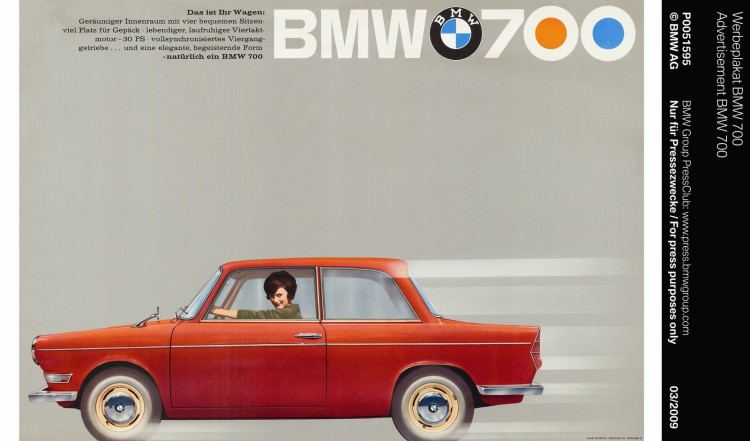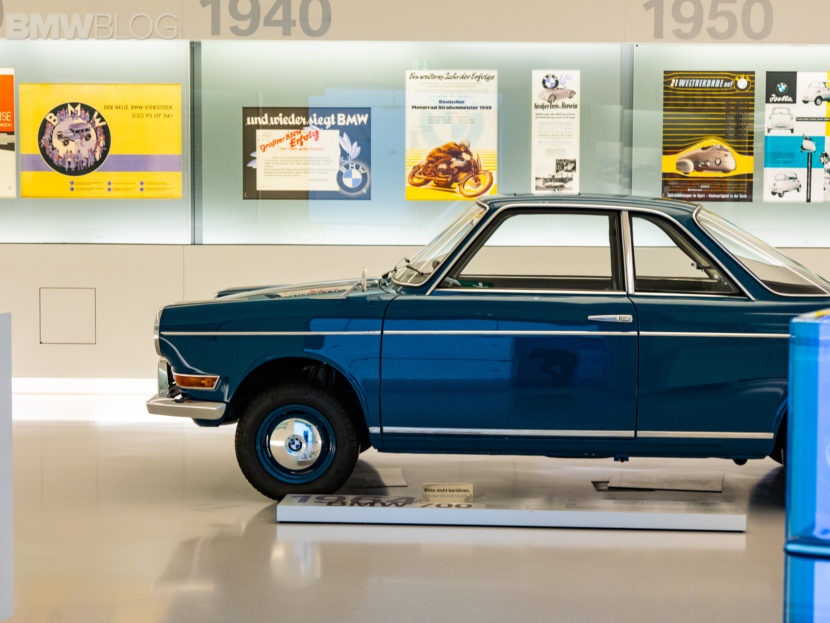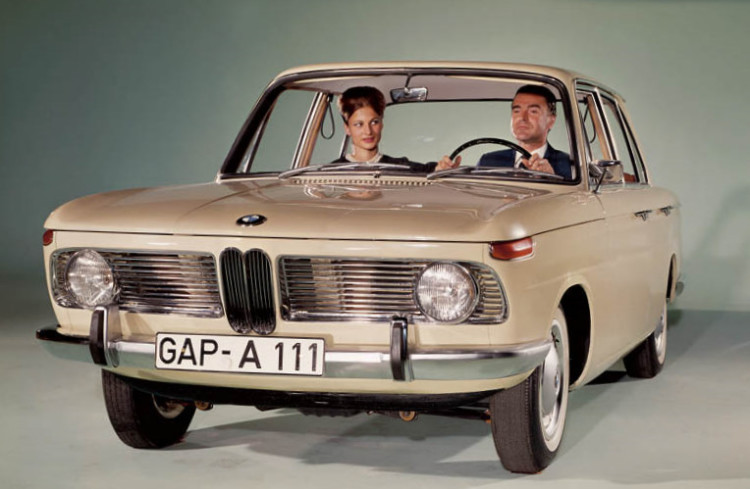The story of the unique BMW ‘Neue Klasse’ is not only the story of a sequence of vehicles based mostly on the BMW 1500, however a narrative of survival, and subsequent revival, within the face of sure company dying.
BMW was in disaster in 1958. It was a full decade since German foreign money reform occurred, which break up the nation between east and west. For the west, foreign money reform meant a monetary renaissance – the “Wirtschaftwunder”. The Suez disaster of 1956, which had crippled center jap oil imports into Europe, and strengthened the marketplace for “bubble vehicles”, was now within the rear view mirror.
Given a wholesome financial system and prepared entry to gasoline, Germans misplaced their style for bikes and ‘microcars’. They regarded ahead to family-sized automobiles that may fulfill the rising prosperous center class. Subsequently, quite a few “bubble automotive” producers went out of enterprise in 1958, Brütsch, Fuldamobil, Heinkel, Kleinschnittger, Maico, and Zundapp amongst others. BMW itself was on the cusp of failure.
Survival and Revival
BMW had simply barely survived World Battle II and because it emerged from the doldrums, it was determined that an emphasis can be positioned on costly – low quantity – vehicles, given the state of manufacturing services and obtainable expert workforce. The Baroque Angels had been the consequence and had been adopted by quite a few like fashions, the 503, 504, and a handful of 507s that may reuse tooling and elements for the big vehicles. Nevertheless, BMW turned reliant on its “bubble vehicles,” the 250, 300, and the 600, for the majority of its gross sales.
Dr. Heinrich Richter-Brohm, BMW’s CEO, laid the groundwork for BMW to construct a mid-size mannequin. It was hoped that this might convey a brand new class of consumers to the marque. BMW had studied client wishes and knew they wanted a mid-sized providing that may enchantment to the rising center class. The issue, as is usually the case, is tips on how to finance the event of a brand new automotive. The design, engineering, and manufacturing assets required to convey a brand new mannequin to market can’t be completed on a budget.
Dr. Heinrich Richter-Brohm and the Mid-Measurement Imaginative and prescient
With no mid-size mannequin available on the market, a extra fascinating small automotive was desperately wanted to maintain money circulate going. The Michelotti-designed 700 – a “poor man’s Porsche” – was purposefully designed to reuse as a lot as doable from the 600. The 700 was introduced to the board in the course of 1958. It had been created for BMW by Wolfgang Denzel, the Austrian BMW importer. The 700 foreshadowed the eventual ‘Neue Klasse’ in its monocoque chassis and semi-trailing arm rear suspension. It managed to promote nicely sufficient to maintain the corporate afloat.
BMW had began addressing the design of a brand new mid-size car in 1953. BMW examined totally different proposals for engines in addition to quite a few designs for the automotive itself. Most of the drawings for the automotive aped the then-current types – mainly ¾ sized American sedans, replete with styling gimmicks that weren’t not like modern mid-sized mass-market German vehicles.
Early Prototypes and Challenges
One method to the brand new mid-size automotive led to the design of the M530 engine of 1.6-liter displacement, based mostly on one financial institution of the present V8. This was the powerplant that went into the good-looking 530 prototype. However with out funding, the 530 died on the vine. It was a disgrace the 530 didn’t go into manufacturing; it was a timelessly styled magnificence. The BMW Dimensions E book #2, The Historical past of Engines – Engines That Made Historical past, 1945 – 2000 has quite a few pictures of the 530 prototype on pages 166 and 170. (It’s unlucky that searches on the web don’t return photographs of this automotive.)
Rejecting the M530 engine, BMW then regarded on the M109 four-cylinder (0.9 liter) as they continued to discover a mid-sized providing. The M109, nevertheless, was restricted by its bore spacing, so an engine with bigger bore spacing, the M115, was conceived. Makes an attempt to create an aluminum alloy block didn’t ship anticipated outcomes, so a forged iron block was chosen with an aluminum cylinder head and single overhead camshaft. BMW would designate this because the M10 engine in 1963, which utilized to any inline four-cylinder with 100 mm bore spacing. It’s the M10 that may go into the ‘Neue Klasse’ vehicles.
The December 1959 Disaster
Sadly, the funds obtainable to BMW, even with the earnings from the 700, weren’t sufficient to cowl the funding wanted to construct the mid-sized automotive. In December 1959, BMW was on the block – destined to be absorbed by Daimler-Benz. A board member had organized a ‘hearth sale’ value for BMW, and it might have been absorbed entire into Daimler-Benz. Tenacious opponents to the sale, together with stability sheet improprieties, punctured the plans to promote the corporate; whereas within the background, work was already underway to ship management of the corporate to a sympathetic savior, Herbert Quandt.
One potential supply of funds was the sale of BMW’s aviation manufacturing facility. BMW had created a subsidiary to fabricate plane engines at its Allach facility in 1954. By 1958 it was making license-built AVCO – Lycoming piston engines and later obtained a license to construct the GE J79 jet engines for the Luftwaffe’s F-104 Starfighter program. The funds wanted to assist these actions had been straight competing with the funding required for the ‘Neue Klasse.’
The Allach plant was a fascinating property, however BMW was taking a look at an all-or-nothing sale of Allach and the Milbertshofen manufacturing facility, with the hope that the client would proceed to implement BMW’s manufacturing plans. Ultimately, a fifty p.c stake within the Allach facility was offered to MAN, and the Quandts organized extra financing to permit BMW to maneuver ahead with the “Neue Klasse.”
The BMW 1500: A Sport-Changer
Lastly, work on the brand new BMW mid-size providing may proceed. The beforehand talked about M115 engine would turn into the center of the BMW 1500 proven on the Frankfurt Worldwide Auto Present in 1961. It produced extra energy than similar-sized modern engines. The 1500 additionally had absolutely impartial suspension, entrance wheel disc brakes, and a clear, conservative type. The design of the 1500 was underneath the course of Hofmeister’s Bodywork Improvement Group – with Michelotti’s enter since BMW didn’t have a separate design studio on the time.
Key Design Options of the BMW 1500
The BMW 1500 was successful. A clear automotive with taut surfaces, it appealed on to the occasions. Its three-box design with capacious storage for baggage and greater than sufficient room for 4 or 5 passengers was what the rising German center class desired. Some styling cues that may turn into BMW hallmarks had been additionally seen on the 1500. A horizontal entrance grille with two spherical headlights interrupted within the center by BMW’s iconic twin kidney grilles. A swage, or ‘sicke,’ line that ran horizontally beneath the greenhouse emphasised the automotive’s size (whereas its actual function was so as to add power to the sheet metallic), after which there was the Hofmeister kink. Its stacked vertical taillights additional added to its stylishly conservative look, simply what the great German burghers had been in search of.


Additional enhancing the 1500’s enchantment was its energy and experience high quality supplied by the all-independent suspension. Jeremy Walton, in his guide, BMW ULTIMATE DRIVERS VOL I: 1937-1982, detailed the driving expertise of the 1500. He famous the 4 full turns lock to lock of the unassisted worm & curler steering gear, and that the automotive rode on tall skinny bias ply tires, which could possibly be a little bit of a handful within the moist. However within the dry, it was a vice-free, comfy driving machine with extra energy than its friends.
BMW now needed to squeeze manufacturing into the crowded Milbertshofen facility whereas coaching its employees and creating, advertising, distribution, and after-sales assist. There have been bumps alongside the street, significantly high quality points – each in design and execution – of the early examples. However the items had been lastly in place to shine a manner ahead for BMW.
The Impression of the Neue Klasse


The ‘Neue Klasse’ propelled BMW from a moribund firm to considered one of nice vigor. The ‘Neue Klasse’ rejuvenated BMW’s manufacturing, advertising, distribution, and gross sales. It was the correct product on the proper time. BMW would adroitly use the ‘Neue Klasse’ to place themselves for the booming financial circumstances to come back.







